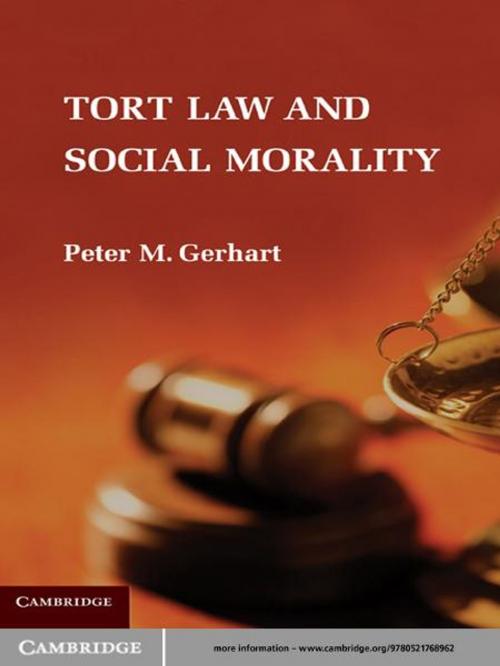| Author: | Peter M. Gerhart | ISBN: | 9780511848490 |
| Publisher: | Cambridge University Press | Publication: | April 19, 2010 |
| Imprint: | Cambridge University Press | Language: | English |
| Author: | Peter M. Gerhart |
| ISBN: | 9780511848490 |
| Publisher: | Cambridge University Press |
| Publication: | April 19, 2010 |
| Imprint: | Cambridge University Press |
| Language: | English |
This book develops a theory of tort law that integrates deontic and consequential approaches by applying justificational analysis to identify the factors, circumstances, and values that shape tort law. Drawing on Kantian and Rawlsian philosophy, and on the insights of game theorist Ken Binmore, this book refocuses tort law on a single theory of responsibility that explains and justifies the broad range of tort doctrine and concepts. Under this theory, tort law asks people to appropriately incorporate the well-being of others into the decisions they make, explains when that duty applies, and explains the scope and limits of that duty. The theory also incorporates a theory of the evolutionary development of social values that people use, and ought to use, in meeting that duty and explains how decision-making from behind the veil of ignorance allows us to evaluate the is in light of the ought.
This book develops a theory of tort law that integrates deontic and consequential approaches by applying justificational analysis to identify the factors, circumstances, and values that shape tort law. Drawing on Kantian and Rawlsian philosophy, and on the insights of game theorist Ken Binmore, this book refocuses tort law on a single theory of responsibility that explains and justifies the broad range of tort doctrine and concepts. Under this theory, tort law asks people to appropriately incorporate the well-being of others into the decisions they make, explains when that duty applies, and explains the scope and limits of that duty. The theory also incorporates a theory of the evolutionary development of social values that people use, and ought to use, in meeting that duty and explains how decision-making from behind the veil of ignorance allows us to evaluate the is in light of the ought.















